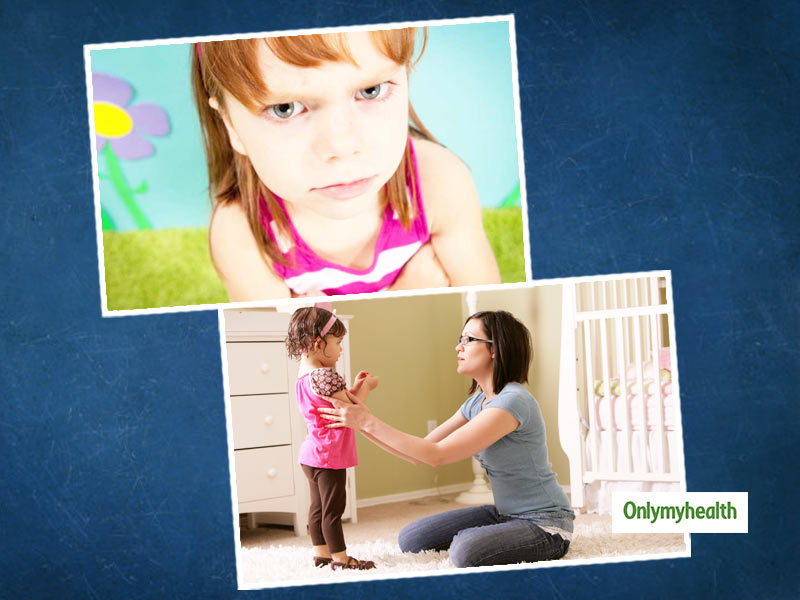
How do you discipline a toddler without yelling and hitting? What is discipline? It is all about setting rules to stop your little one from engaging in aggressive, dangerous, and inappropriate behaviour. It is also about following through with consequences when they break the rules— i.e. being a good boss. Kids are not born with social skills, so when they are young, you need to teach them about appropriate behaviours. The consequences and rules you implement will stick with them throughout adulthood and childhood. There are mainly three types of toddler behaviour that need to be stopped with discipline (that go beyond the "annoying" category): aggression, breaking fundamental family rules and dangerous acts. When your child is engaged in these behaviours, it is recommended to put on the brakes by implementing "take-charge" consequences: giving a fine and time-out.
Let us look at them in detail with these expert-approved tips
- Know when not to acknowledge: As long as your kid gets plenty of attention for good behaviour and is not doing something dangerous, ignoring poor behaviour can be an efficient method of preventing it. Ignoring bad behaviour can teach kids the real outcomes of their actions. For instance, if your kid especially keeps dropping her cookies, they will soon have no more cookies left to eat. If they break and throw their toys, they will not be able to play with them. It will not be long before they learn to play carefully with their toys and stop dropping their cookies.
- Precede outcomes: Your toddler should learn the natural consequences of his behaviour—otherwise known as effect and cause. For instance, if he loudly insists on selecting his pyjamas (which takes an eternity), he chooses not to read books before bed. In this situation, the effect is no bedtime story, and the cause is prolonged PJ picking. Next time, he may let you pick his pyjamas or choose them more quickly.

- Pick your actions: If you say “no” 20 times per day, it will lose its effectiveness. Different destructive behaviours into medium, low and high priority—and expend most of your energy on the worst offenders. If you ignore a minor infraction, she/he will eventually stop doing it because they'll see that it does not get a rise out of you.
- Execute precautionary steps: Make your house kid-friendly, and have reasonable expectations for your toddler. Moving your expensive jewellery from the nightstand, for example, will eliminate the attraction to play with this. Along those corresponding lines, go to an eatery early, so your family does not require to wait for a table.

- Use time-outs judiciously: When figuring how to discipline a toddler who does not listen or hits, parents with good reason always try the time-out: depriving him of your attention is an effective way to get your message across. Here is a good guideline; it is not paying attention to him for one minute for each year.
- Make your comments sweet and short: Wondering how to discipline a 1-year-old toddler? Young kids have limited vocabularies, so speak in brief sentences, such as "No hitting". It is much more useful than lengthy descriptions ("Baby, you know it is not nice to hit the dog. We should not be doing that.")

- Demand rough points: Individual situations and times of day might trigger bad behaviour. One of the biggest culprits is transitions from one activity to the next (waking up, going to bed, stopping play from eating dinner). Give your child a heads-up, so he is more prepared to switch gears.
- Remind your kid that you love him/her: It is always smart to end a discipline discussion with a positive comment. This shows your child that you are not ready to dwell on the problem and ready to move on. It also reinforces that you are only setting limits because you love them.
- Be an excellent example: Your child will take the cue if you act calmly under pressure. When you are upset, do you have a temper tantrum? Then you must expect your children to do the same. Little children tend to mimic their parent's behaviour, so it is vital to be a good role model.

- Give your toddler options: If you give your child choices, they will feel like they have a vote. Just make sure that they are all productive and you do not offer too many options, such as, "It is your choice: You can put your coat on first or your shoes".
- Do not make promises or negotiate with your toddler: Try to avoid saying anything like, "If you behave, I will buy you that toy you want". Otherwise, you will create a 2-year-old whose good behaviour will always come with a price tag.
Read More Articles in Tips for Parents







